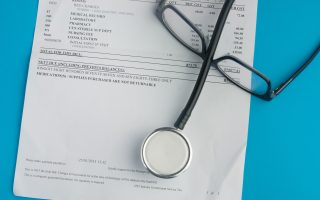
You trust your doctor and your pharmacist. When you get a prescription, you believe it will help you, not harm you. For the most part, that’s true. Medications save lives and improve our quality of life every day. However, it’s important to be an informed patient. Some widely used medications carry hidden risks that you need to be aware of.
One of the most serious potential side effects is an increased risk of stroke. A stroke happens when the blood supply to part of your brain is interrupted, which prevents brain tissue from getting oxygen. It can be devastating. Here are some common medications that can cause a stroke, and what you need to know to stay safe.
1. Nonsteroidal Anti-Inflammatory Drugs (NSAIDs)
This category includes over-the-counter pain relievers like ibuprofen (Advil, Motrin) and naproxen (Aleve). It also includes stronger prescription NSAIDs that doctors prescribe for arthritis. These drugs are incredibly common, but they are not as benign as many people think.
Specifically, NSAIDs can increase blood pressure and make your blood more likely to clot. Both of these effects can raise the risk of an ischemic stroke, which is caused by a blockage in an artery. The risk is higher with long-term use and larger doses. For this reason, it’s crucial to use the lowest effective dose for the shortest possible time. Aspirin, though technically an NSAID, does not share this increased stroke risk and is often used to reduce cardiovascular events. However, combining aspirin with other NSAIDs may reduce its protective effect.
2. Hormone Replacement Therapy (HRT)
For many years, doctors widely prescribed HRT to women to manage the symptoms of menopause, such as hot flashes. It involves taking estrogen and sometimes progestin. While it can be effective, research has shown a clear link between some forms of HRT and an increased stroke risk.
In particular, studies have shown that combined estrogen-progestin therapy increases the risk of ischemic stroke. The hormones can promote blood clot formation. Therefore, women considering HRT should have a thorough discussion with their doctor about the personal risks and benefits. Important distinction: Oral estrogen therapies are most associated with increased stroke risk. Transdermal (patch) and vaginal estrogen formulations may carry lower or no increased risk. Starting HRT before age 60 or within 10 years of menopause often has a more favorable safety profile.
3. Certain Types of Birth Control Pills
Modern birth control pills are much safer than older versions. However, some types, especially those containing higher doses of estrogen, can still slightly increase the risk of stroke. This is particularly true for women who have other risk factors.
For instance, if you smoke, have high blood pressure, or get migraines with aura, your risk when taking combined oral contraceptives is significantly higher. It’s essential to be completely honest with your doctor about your health history before starting any hormonal contraceptive. Progestin-only contraceptives do not appear to increase stroke risk. For women with multiple risk factors, these may be safer alternatives. The absolute stroke risk for healthy users of combined pills is low—about 8 per 100,000 women per year.
4. Some Antidepressants
Antidepressants can be life-changing for people struggling with depression and anxiety. However, certain classes of these drugs may have an impact on stroke risk. Specifically, researchers have studied selective serotonin reuptake inhibitors (SSRIs) for this connection.
Some studies suggest that SSRIs might slightly increase the risk of hemorrhagic stroke, which bleeding in the brain causes. The theory is that these drugs can affect platelet function, making it harder for blood to clot. The overall risk is still very low, but it’s something to be aware of. While some studies suggest a small increase in hemorrhagic stroke risk, others do not. The absolute risk remains very low. Caution is most warranted in people with a history of brain hemorrhage.
5. Decongestants Containing Pseudoephedrine
When you have a bad cold, you might reach for a decongestant to clear your stuffy nose. Many of these products contain pseudoephedrine, a stimulant that works by narrowing blood vessels. This is why you often have to buy them from behind the pharmacy counter.
Because it constricts blood vessels, pseudoephedrine can raise your blood pressure. For people who already have hypertension, this can be dangerous and could potentially trigger a stroke. Consequently, always check with a pharmacist before using these products if you have any cardiovascular issues. Regulators in Europe and the UK have advised against pseudoephedrine use in people with severe hypertension or kidney disease due to rare but serious stroke-like complications. Always consult a pharmacist if you have vascular conditions.
6. Weight Loss Medications
Certain prescription drugs for weight loss work as stimulants. They suppress appetite and increase metabolism. Historically, some of these drugs, like fen-phen, were taken off the market because they caused serious heart and lung problems.
Modern weight loss medications vary widely. Stimulant-based appetite suppressants can raise blood pressure and heart rate, increasing stroke risk. However, newer drugs like GLP-1 receptor agonists (e.g., semaglutide) may actually reduce stroke risk in people with diabetes or obesity. Always discuss the specific medication’s risks and benefits with your doctor.
7. Antipsychotic Medications
Doctors use antipsychotic drugs to treat serious mental health conditions like schizophrenia and bipolar disorder. They are powerful and effective, but they can have significant side effects. Studies have shown that both older and newer (atypical) antipsychotics are associated with an increased risk of stroke.
This risk is particularly high in elderly patients with dementia. The exact mechanism isn’t fully understood. However, it’s believed these drugs may contribute to blood clots, low blood pressure, and heart rhythm problems. This is why they are used with extreme caution in this population. Both typical and atypical antipsychotics carry stroke risk, especially in elderly patients with dementia. These medications have FDA black box warnings for increased mortality and cerebrovascular events in this group. Use should be carefully monitored and minimized when possible.
Be Your Own Health Advocate
This information is not meant to scare you or to suggest you should stop taking your medication. It’s about empowerment. Understanding the potential risks allows you to have more informed conversations with your healthcare provider. Never stop or change a medication dosage without talking to your doctor first. Being an active participant in your healthcare is one of the best ways to protect your long-term health.
Were you surprised by any of the medications on this list? Leave a comment below.
What to Read Next…
- 7 Common Medications That Drain Your Energy Levels
- 5 Common Medications That Have Been Linked to Personality Changes
- 9 Medical Decisions That Backfire Without the Right Power of Attorney
- 9 Emergency Procedures That Bypass Your Medical Directives
- 5 Reasons Seniors Fear Grocery Apps That Do “Autonomous Checkout” Too Much

Latrice is a dedicated professional with a rich background in social work, complemented by an Associate Degree in the field. Her journey has been uniquely shaped by the rewarding experience of being a stay-at-home mom to her two children, aged 13 and 5. This role has not only been a testament to her commitment to family but has also provided her with invaluable life lessons and insights.
As a mother, Latrice has embraced the opportunity to educate her children on essential life skills, with a special focus on financial literacy, the nuances of life, and the importance of inner peace.







